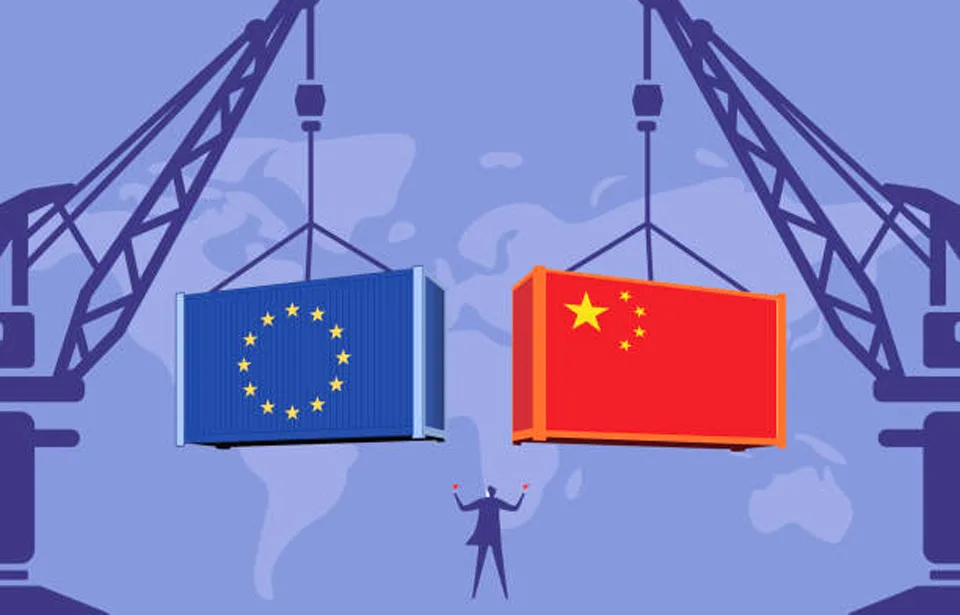The European Union is preparing to conduct two extensive surveys aimed at assessing the impact of China’s growing production capacity for older-generation semiconductors, known as legacy chips. These surveys, set to be launched by the European Commission (EC) in September, will scrutinize the sources and pricing of these chips, particularly focusing on Chinese suppliers. This initiative highlights the EU’s growing concern over China’s dominance in the semiconductor industry, which could have significant implications for global trade and technological sovereignty.
The semiconductor industry is crucial for the global economy, underpinning everything from consumer electronics to advanced military systems. Legacy chips, typically defined as those based on 28-nanometer and older technologies, are fundamental to a wide range of industries, including automotive, aerospace, and home appliances. As China ramps up its production of these mature semiconductors, the EU is seeking to understand the potential market distortions and ensure the reliability of its supply chains.
The EC’s upcoming surveys will target major chip-consuming industrial firms and the semiconductor industry within the EU. According to a Reuters report from July 6, the EC has already begun soliciting feedback on the draft questions for these surveys. The key focus will be on identifying the sources of legacy chips, understanding pricing dynamics, and evaluating the competitive landscape, particularly in relation to Chinese chipmakers.
Strategic Importance of Legacy Chips: EU’s Concerns and Strategic Response
Legacy chips are older semiconductor technologies that remain vital due to their extensive use in various sectors. Despite the industry’s focus on cutting-edge chips, these mature semiconductors are indispensable for many applications that do not require the most advanced processing capabilities.
China’s integrated circuit production surged by 32.7% in the first five months of the year, with exports growing by 10.5%. According to TrendForce, China’s global market share for mature chips is expected to increase from 31% at the end of last year to 39% by 2027. This rapid growth is supported by substantial government subsidies, which the US Commerce Department estimates to be around $150 billion over the past decade.
In early April, the EC announced its intention to assess the “trustworthiness” of legacy chips used in various industries. The primary concern is that China’s subsidized production could create an uneven playing field, disadvantaging European and other international competitors.
The EC’s recent decision to impose provisional tariffs of up to 37.6% on Chinese electric vehicles (EVs) indicates a broader strategy to counteract market distortions. This move, which awaits a final decision in November, has already prompted China to launch anti-dumping probes on European imports of pork and brandy.
At the sixth ministerial meeting of the EU-US Trade and Technology Council in April, EU Competition Commissioner Margrethe Vestager and US Commerce Secretary Gina Raimondo agreed to coordinate efforts on investigating China’s legacy chip market. This transatlantic collaboration underscores the strategic importance of semiconductors and the need for a unified response to China’s growing influence.
Some commentators predict that the EU may soon impose tariffs on China’s legacy chips, similar to the measures taken against Chinese EVs. Such actions could lead to significant trade tensions and retaliatory measures from China, affecting a wide range of industries.
European industries, particularly those heavily reliant on legacy chips, could face increased costs and supply chain disruptions. German automakers, for instance, are significant consumers of these chips and may find it challenging to source alternatives.
China is likely to respond to any EU-imposed restrictions with countermeasures targeting European products. This tit-for-tat dynamic could escalate into a broader trade conflict, affecting global markets and economic stability.
A Chinese IT columnist, writing under the pseudonym Uncle Biao, argues that China’s dominance in the legacy chip market is inevitable given its substantial domestic demand. He contends that even coordinated efforts by the US and EU will not significantly alter this trajectory.
Christophe Fouquet, CEO of chip-making equipment maker ASML, highlighted the growing demand for legacy chips in an interview with Germany’s Handelsblatt newspaper. He noted that Western chipmakers are not investing enough in this sector, which is perceived as less profitable, thereby increasing dependence on Chinese suppliers.
Uncle Biao also suggests that maintaining an open market will allow China to achieve technological breakthroughs in advanced semiconductors. This perspective underscores the broader strategic considerations for both China and its Western counterparts.
The semiconductor industry is at the nexus of national security and economic interests. As countries strive to secure their technological sovereignty, the balance between open markets and protective measures will be critical.
Both the EU and the US may need to ramp up investments in their domestic semiconductor industries to reduce dependence on Chinese supplies. This could involve subsidies, research and development initiatives, and strategic partnerships.
Ensuring the resilience of global supply chains will be a key challenge. Diversifying sources of legacy chips and enhancing cross-border collaborations can mitigate risks associated with over-reliance on a single country.
- EU’s Strategic Surveys: The European Commission’s surveys aim to understand the impact of China’s growing legacy chip production on the EU’s industrial and semiconductor sectors.
- China’s Dominance: China’s market share for mature chips is expected to rise significantly, supported by substantial government subsidies.
- Trade Tensions: The imposition of tariffs on Chinese EVs and potential tariffs on legacy chips could escalate trade tensions between the EU and China.
- Global Supply Chain Resilience: Diversifying sources and investing in domestic semiconductor capabilities will be essential for mitigating risks and ensuring supply chain resilience.
- Technological Sovereignty: Balancing national security and economic interests will be crucial as countries navigate the complexities of the global semiconductor industry.
The EU’s forthcoming surveys on China’s legacy chip production capacity reflect growing concerns about market distortions and the reliability of supply chains. As China solidifies its position in the semiconductor industry, the EU and the US are likely to pursue coordinated strategies to safeguard their economic and technological interests. The potential for tariffs and trade disputes underscores the complex interplay between national security and global trade dynamics. Moving forward, investments in domestic capabilities and resilient supply chains will be crucial for maintaining technological sovereignty and economic stability.




















Discussion about this post